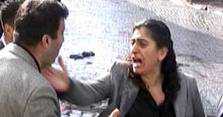By and
AMERICAN-STATESMAN STAFF
For Texas legislators, one of the most coveted activities in recent years has been 10-day trips to Turkey, paid for in full or in part by various Turkish American organizations.
A dozen or so state officials, including several Central Texas legislators, have taken the trips in the past several years, and more have been invited this year.
Sen. Troy Fraser, R-Horseshoe Bay, said he has taken many fact-finding trips, including to almost every country in Europe, but Turkey stands out.
He said last fall’s trip to Turkey was “the best I’ve taken” because of the high level of government officials and business leaders he was able to meet.
“They are trying to improve relations,” Fraser said. “It was a trade mission.”
The Turquoise Council of Americans and Eurasians, an umbrella group for Turkish Americans, said the trips are about good will, not lobbying.
“These trips serve to further the business, commercial and cultural relations between Texas and Turkey,” said Kemal Oksuz, the council’s president-elect.
However, some legislators say they’re having second thoughts about going this year, in part because of a recent New York Times article that suggested connections between the Harmony Schools, which operate 33 charter schools in Texas, and several Turkish American businesses and organizations, including the Houston-based Turquoise Council.
The Times questioned whether those connections favor Turkish American companies in bids to build the schools or provide education services.
Additionally, conservative bloggers have implied that the Harmony Schools promote Islam.
Harmony officials deny that their schools teach religion, They also have said they have no connection to the Turquoise Council and its trips.
Despite the denials, Rep. Sid Miller, R-Stephenville, said he believes there are connections between the Turquoise Council, the Harmony Schools and the promotion of Islam.
“After I researched it, I’m not interested,” he said of the council’s invitation to visit Turkey.
As for the Harmony Schools, Miller said, “Apparently it’s (involved in) indoctrination of Islam.”
Although Turkey is a moderate Muslim nation, Miller said: “That just means they’re nonviolent. They won’t cut off your head.”
Rep. Wayne Christian, R-Center, said, “It’s a tempting trip.” But he said he worried about “political overtones” because of reports about Muslim connections.
“If it’s true — and I don’t know that it is — if they’re teaching Islam, that’s a problem,” said Christian, a supporter of charter schools.
Rep. Senfronia Thompson, D-Houston, visited Turkey a few years ago to observe its education system, among other things.
“I don’t remember that anyone talked about the Harmony Schools or anything that anyone in Turkey was doing in Texas,” she said. “They didn’t make a big deal out of religion. It really wasn’t brought up. They wanted people to understand their country.”
Rep. Pete Gallego, D-Alpine, traveled to Turkey five years ago but said he hasn’t decided whether to return this year.
“It was the single most educational trip I’ve taken,” he said. “You have in-depth conversations with the people there, the officials in government, in business, different groups, different ethnicities. You meet and talk with real people.”
Rep. Ken Legler, R-Pasadena, said he is tempted to go because his district includes part of the Houston Ship Channel and he is interested in encouraging more Turkish trade through the port.
But he said he hesitated to accept an offer for an all-expenses-paid trip for him and his wife.
“It would look like a junket,” Legler said. “I’m just worried about how it looks.”
Lawmakers who have taken the trips have reported their value at between $3,200 and $3,800.
The itinerary includes visits with government and business leaders, journalists and everyday citizens, as well as sightseeing at tourist attractions and religious sites.
There’s also time for fun, including a yacht trip on the Bosporus strait, a balloon flight and shopping in the city’s famous bazaars.




